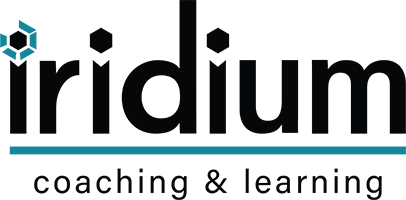On identity
“If I took away your work experience of more than a decade, and your engineering and management qualifications, who would you be?”, I asked my client.
“I don’t know what I’d be left with”, was the response.
What I had challenged was the identity of my client? When you hear statements like, “I can’t be like that” or “I will never do it” or “I want to but you know things will never change”. These are various ways in which we counter a challenge to our identity.
What is our identity? Some beliefs, some values or some non-negotiable rules on how we conduct ourselves in life. Where do these originate from? More importantly, are we condemned to one identity, and in the process, fewer choices?
For answers, I look towards acting. An actor can play the “role” of a lawyer or thief or a school principal or a cook – all without ever having been any of these people in life. Good actors imbibe the mannerisms, the tonality of voice, the walk, the life story of that individual, such that when they portray the character well, we don’t see the actor, we just see that character come alive. A versatile actor is someone who is seen as being emotionally available – which means an access to more choices in ways of being.
Character is an interesting word too. Let’s say there is a strict school principal or a strict uncle or aunt. I am sure you must recollect having one such person in your life! Notice their tone, their posture, their way of being, the words they commonly use – all of that adds up to their identity. In fact, if they acted differently, we would consider it very “out of character”, for them.
Identity is formed as a response to coping with our surroundings and environment as we grow up, and it gradually evolves as we grow up. The evolution is so subtle it is barely visible.
The interesting thing is that while it is a useful coping mechanism, it also limits our choices. We convince ourselves – I must be this way. I must be a Chartered Accountant. Eating non-veg is not a good thing. I don’t belong here. What would everyone think if I went against the grain? This is expected of me. And so on and so forth.
Identity often has a firm grip over us, so there is no freedom to be any other way. If I was James Bond, perhaps I will conduct myself differently. Maybe I’d be willing to take more risks, be more confident. What if instead of being mild mannered and soft spoken, I was Goddess Kali – would I conduct myself differently? If you were struggling in business, and you became Anand Mahindra, how would things be different?
What if our identity was just one role that we were playing in this movie called our life. Would it be okay if we continued with limited choices, playing the role of a proverbial school teacher or a mother forever? Or would we want to allow ourselves some leeway to switch into different roles? And therefore some freedom to “be” another way.
The Alter Ego Effect is a beautiful book by Todd Herman that allows us to explore or tap into an empowering version of ourselves, as opposed to a version that limits us. If the identity that we consider ourselves to be, is also something that was created over a period of time, why not develop the ability to create another identity that is suitable as per different situations we face. So rather than being a strict boss at a picnic, how about switching into a fun-loving and jovial version of that person, who acts as the occasion demands.
In our NLP Foundation Course, we did a roleplay exercise asking participants to be in conversation as different people – cab driver and irate customer, a complaining teacher and a concerned parent, a baker and an unhappy cake customer.
After the exercise, participants indicated they were able to get into the skin of a cab driver or have more empathy for the teacher or get a better sense of how the baker would have dealt with the unhappy customer. In a separate conversation, another participant who runs a business experienced relief when the identity was that of a beginner as opposed to an experienced business person or a startup founder! We approached this through the work that Robert Dilts and Gregory Bateson did on “Neurological Levels”.
If tapping into another identity can create choices and freedom for you, would you want to still hold on to the identity that you have held on to all these years?
In the movie called your life, you are the script writer, director, producer and actor – what identity do you want to don next?
Tail Note: Identities also have broader implications when we think of ideologies or dogmas that people are associated with. National identity can sometimes create challenges when confronted with an opposing national identity. We already know what happens when identity takes the form of race, gender and other such preferences. In the corporate world, titles and designations serve a function but also create barriers.
In Transactional Analysis, there is the concept of functional fluency, which is being able to switch across various roles in a way that affords us more choices, but also in establishing a sense of okayness for us and others. This is also what ontological flexibility is about. However, all of this starts with awareness of our own self, our triggers and patterns. For if we don’t know where we stand, how will we know where to reach?

